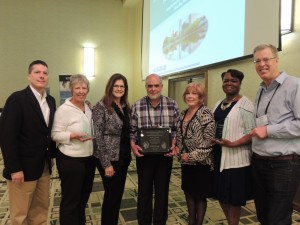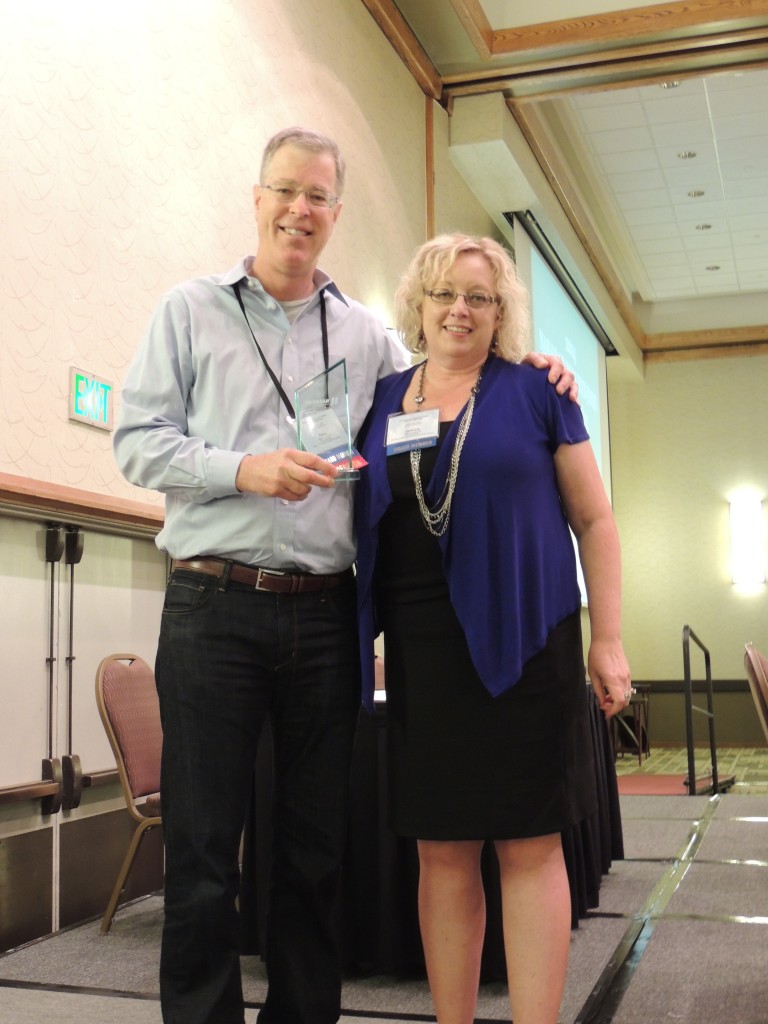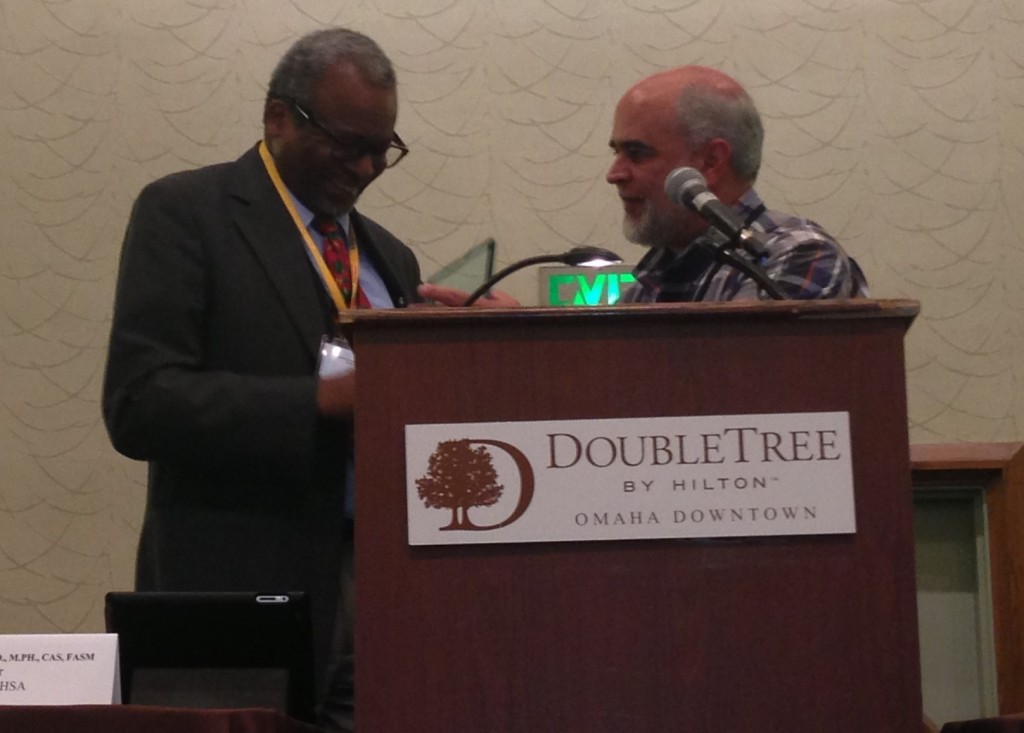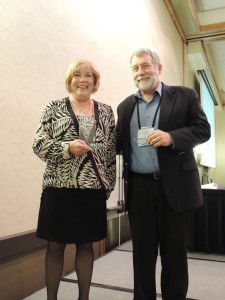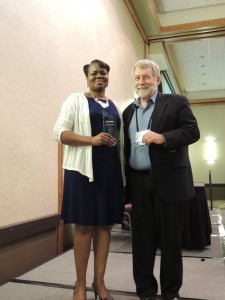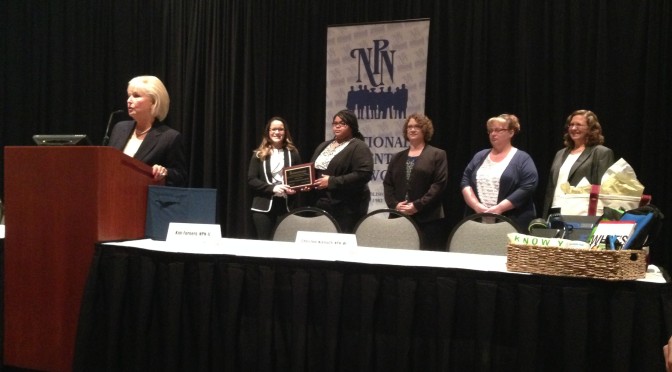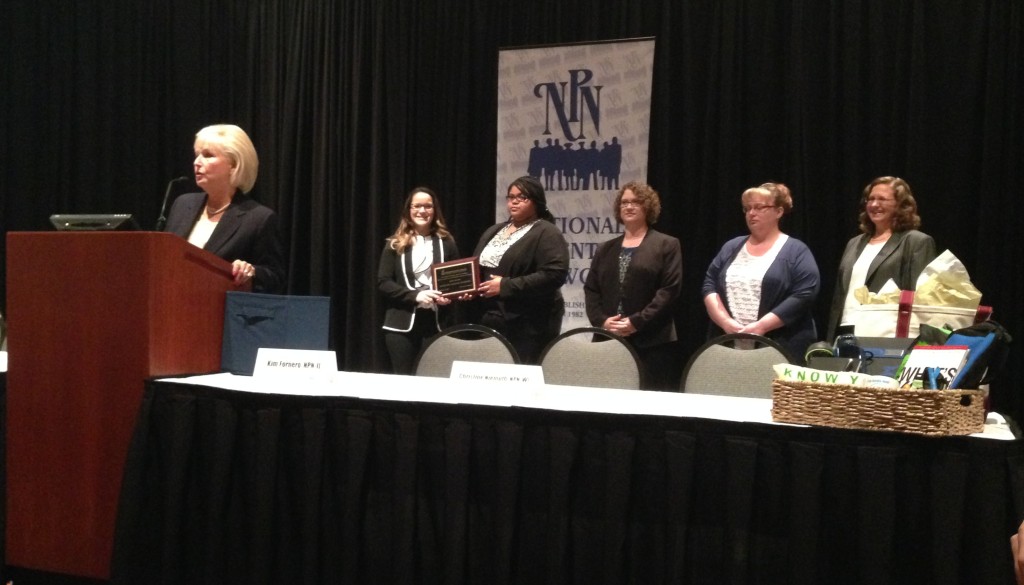News from NASADAD
- NASADAD attends Hill briefing on medications covered in Medicare Part D
- NASADAD attends TCA Hill briefing on substance use disorder treatment for veterans
- NASADAD attends Hill briefing on prescription opioid misuse
- NASADAD releases section-by-section analysis on overdose prevention bill by Sen. Reed
Around the Agencies
- Dr. H. Westley Clark, Director of CSAT announces retirement
- SAMHSA/HRSA releases white paper on expanding MAT in safety-net settings
- CMS releases FAQ on Autism services covered in Medicaid
- CMS hosts virtual meeting on Medicaid Innovation Accelerator Program
- CMS releases informational bulletin on Medicaid Innovation Accelerator Program
- HHS releases issue brief on insurer participation in the health insurance marketplace
- HHS releases report predicting drop in hospital uncompensated care costs
- CDC releases State data on increases in heroin overdose from 2010 to 2012
- BJS releases report on prisoner recidivism
In the News
- USA Today publishes article on changing marijuana laws and road safety
News from NASADAD
NASADAD attends Hill briefing on medications covered in Medicare Part D
Colleen Haller, Public Policy Associate attended the briefing on September 30th hosted by the Partnership for Part D Access. The panelists discussed the importance of maintaining access to the full range of medications under Part D. Specifically, panelists discussed Medicare’s six protected classes of medications, a policy that has protected access to a number of medications that patients may need. Panelists included Medicare beneficiaries, as well as clinicians to share their experience with medications for various conditions, particularly mental health issues, organ transplants, and epilepsy. One central theme from the presentations was the variability in medication effectiveness and side effects between individual patients. While some medications are ideal for some, other patients may require alternatives to fit their specific needs.
Moderator:
Chuck Ingoglia, National Council for Behavioral Health
Panelists:
Dr. Nicole Brandt, Senior Care Pharmacist and Professor, University of Maryland
Dr. Ray Martins, Chief Medical Officer, Whitman-Walker Health
Dr. Jeanie Tse, Associate Chief Medical Officer, ICL
Dr. Matthew Cooper, Director of Kidney and Pancreas Transplantation, MedStar Georgetown
Joanne Buzaglo, PhD, Research and Training Institute, Cancer Support Community
Trudy Lapin, Patient living with bipolar disorder
Carlton Zeigler, Patient living with epilepsy
NASADAD attends TCA Hill briefing on substance use disorder treatment for veterans
Colleen Haller, Public Policy Associate attended the briefing, “Repaying Our Debt: Expanding Access to Addiction Treatment for Veterans” hosted by the Treatment Communities of America (TCA) on September 29th. Panelists discussed various ways that nonprofit organizations and the federal government can increase access to substance use disorder treatment for veterans, particularly veterans returning from Iraq and Afghanistan. Delays in treatment for veterans can lead to destructive behavior and involvement with the criminal justice system. The panelists provided a number of solutions and perspectives including increasing access to veteran-specific treatment programs and peer-to-peer support, expanding veterans’ treatment courts and alternatives to incarceration for veterans, and educating veterans on the services available and how to access them. Representatives Clay (D-MO) and Bass (D-CA) also provided remarks.
Panelists:
Dr. Ira Katz, Office of Mental Health, Department of Veterans Affairs
Janetta Astone-Twerell, PhD, Director of Research and Evaluation, Samaritan Village, NY
Melissa Fitzgerald, Senior Director, Justice for Vets, VA
Dan Caddy, Army National Guard and President, Battle in Distress, VT
NASADAD attends Hill briefing on prescription opioid misuse
Colleen Haller, Public Policy Associate attended the briefing, “Prescription Opioid Abuse: Fighting Back on Many Fronts” hosted by the Alliance for Health Reform on September 29th. The briefing primarily focused on efforts to reduce the supply of prescription opioids using prescription drug monitoring programs (PDMPs) or patient review and restriction programs (PRRs). One panelist discussed how providers in rural West Virginia have implemented measures to restrict prescriptions to chronic care patients and have utilized the expertise of an addiction specialist to evaluate patients for their substance use disorder risk.
Panelists:
Grant Baldwin, Centers for Disease Control and Prevention (CDC)
Allan Coukell, Pew Charitable Trust
Jo-Ellen Abou Nader, Express Scripts
Dr. Sarah Chouinard, Primary care physician, WV
NASADAD releases section-by-section analysis on overdose prevention bill by Sen. Reed
NASADAD released the analysis of a bill introduced by Sen. Jack Reed (D-RI) in July. The bill, the “Overdose Prevention Act” was co-sponsored by Sens. Durbin (D-IL), Leahy (D-VT), Markey (D-MA), and Whitehouse (D-RI). The legislation would create a program for organizations to enter into cooperative agreements with the Centers for Disease Control and Prevention (CDC) to reduce fatal overdose. A variety of entities would be eligible, including State governments and nonprofit organizations. Funded participants will use funds to purchase and distribute naloxone (an overdose reversal medication). Organizations may also use funds to educate health care professionals about overdose prevention, train first responders on overdose response, or educate the public about overdose prevention. The legislation also seeks to improve surveillance and data collection on overdose, both fatal and nonfatal. This includes establishing two programs to improve electronic surveillance and reporting. Finally, the legislation instructs the Secretary of the Department of Health and Human Services (HHS) to consult with a task force of stakeholders and develop a national plan to reduce the number of overdose deaths. NASADAD has not taken a position on this legislation.
Around the Agencies
Dr. H. Westley Clark, Director of CSAT announces retirement
Dr. Clark, Director of the Center for Substance Abuse Treatment (Substance Abuse and Mental Health Services Administration, SAMHSA) announced his retirement via email on September 30th. Dr. Clark has more than 30 years of experience in substance use disorder treatment and recovery and has received a variety of awards and honors for his tremendous work throughout his career, including a 2008 President of the United States Rank of Distinguished Executive Award and the U.S. Department of Health and Human Services Secretary’s Award for Distinguished Service, among many others. Dr. Clark’s passion and dedication for improving access and services for people with substance use disorders is deeply appreciated and will be sincerely missed. His retirement will be effective October 4th.
SAMHSA/HRSA releases white paper on expanding MAT in safety-net settings
The Center for Integrated Health Solutions, under the Substance Abuse and Mental Health Services Administration (SAMHSA) and Health Resources and Services Administration (HRSA), released the white paper, “Expanding the Use of Medications to Treat Individuals with Substance Use Disorders in Safety-Net Settings: Creating Change on the Ground, Opportunities and Lessons Learned from the Field” in September. The brief provides results from a pilot project with State substance abuse agencies and community safety-net providers to increase the adoption of medication-assisted treatment (MAT) in primary care, substance use disorder treatment, and community mental health programs. The brief offers an overview of the project, outcomes, opportunities, and lessons learned. A number of lessons were identified, including the importance of workforce development, using data, developing community partnerships, and community and State leadership.
CMS releases FAQ on Autism services covered in Medicaid
The Centers for Medicare and Medicaid Services (CMS) released a short set of frequently asked questions (FAQ) on Medicaid services for Autism Spectrum Disorder (ASD). The FAQ clarifies that specific ASD treatment modalities, such as Applied Behavioral Analysis, are not mandated under Medicaid. The FAQ also clarifies that CMS does not have a timeframe for implementing new Medicaid obligations for ASD in all States, explaining that States will first review the current policies and see which changes must be made to meet the new CMS requirements. The FAQ also discusses a plan for moving ASD service coverage away from 1915(c) waivers and towards Medicaid coverage.
CMS hosts virtual meeting on Medicaid Innovation Accelerator Program
The Centers for Medicare and Medicaid Services (CMS) will host the virtual meeting on October 9th from 12:30-2:30 EST. The virtual meeting will allow individuals who have not been able to participate in an in-person meeting with CMS about the program to have an opportunity to learn and talk more about the program. The Medicaid Innovation Accelerator Program (IAP) will support State efforts to accelerate Medicaid innovation. This webinar will help States learn about the IAP and have an opportunity to provide feedback and suggestions on the type of technical assistance tools States will need. Participants will also be able to learn how the IAP can support State efforts related to substance use disorders.
CMS releases informational bulletin on Medicaid Innovation Accelerator Program
The Centers for Medicare and Medicaid Services (CMS) released an updated bulletin about the Medicaid Innovation Accelerator Program (IAP). The goal of IAP is to improve care and health for Medicaid beneficiaries and reduce costs for Medicaid providers. CMS aims to achieve these goals through offering new tools and resources, as well as improved analytics and evaluation of programs. Among these analytics, the bulletin shows that Medicaid currently covers more than 65 million people in the United States, 49% of whom are children, and is projected to increase by 5 million in 2015. The bulletin also shows that alcohol and substance use disorders are among the top ten diagnoses for hospital readmissions in Medicaid.
HHS releases issue brief on insurer participation in the health insurance marketplace
The Department of Health and Human Services (HHS) released the brief, “Health Insurance Issuer Participation and New Entrants in the Health Insurance Marketplace in 2015” in September. “At least 248 Qualified Health Plan issuers will participate in the federally-facilitated Health Insurance Marketplace in 2015, and at least 67 will participate in state-based Marketplaces, according to preliminary data from 44 states released yesterday by the Department of Health and Human Services. That’s 63, or 25%, more than this year. Some issuers belong to the same parent company. Fourteen issuers this year have not filed for participation in 2015” (American Hospital Association, AHA News).
HHS releases report predicting drop in hospital uncompensated care costs
The report, “Impact of Insurance Expansion on Hospital Uncompensated Care Costs in 2014,” was released in September by the Department of Health and Human Services (HHS). The report projects that hospitals will save $5.7 billion in 2014 in costs due to uncompensated care. The report finds that these savings are largely in result of the Affordable Care Act’s (ACA) expansion of Medicaid. Hospitals in States that have expanded Medicaid are projected to see greater savings than hospitals in States that have not expanded. In fact, $4.2 billion of the projected savings will come from expansion States (HHS press release).
CDC releases State data on increases in heroin overdose from 2010 to 2012
The Centers for Disease Control and Prevention (CDC) released the data on October 3rd as part of their Morbidity and Mortality Weekly Report (MMWR). Using data submitted by State health departments in 28 States, CDC found that the overall death rate from heroin overdose doubled from 2010-2012. Comparing the same years, the overall death rate from prescription opioid overdose decreased by 6.6%. These rates varied widely among States. In 2012, 25-34 year olds had the highest death rate from heroin overdose and individuals aged 45-54 had the highest rate of overdose from prescription opioids. In 2012, the heroin death rate was almost four times higher for men, while the prescription opioid overdose death rate was only 1.4 times higher for men than women.
BJS releases report on prisoner recidivism
The Bureau of Justice Statistics (BJS) released a special report on prison recidivism in 30 states. The data published covers prisoner statistics from 2005 to 2010, and indicates that 67.8% of prisoners were arrested within 3 years of release, and 76.6% were arrested within 5 years of release. Among these statistics, 76.9% of drug offenders were arrested for a new crime within 5 years of release. The report includes useful tables and graphs. These illustrations highlight the demographics and common reasons behind prisoner recidivism, including age, race, location, and nature of the crime.
In the News
USA Today publishes article on changing marijuana laws and road safety
On September 25th, USA Today reported on the effects of easing marijuana laws on traffic and road safety. Medical marijuana is now legal in 23 states, and has been decriminalized in 16 states and D.C. Road safety advocates are now looking at the impact this may have on driving accidents. While marijuana has been shown to decrease aggressive driving, its role in fatal crashes rose from 4% in 1999 to 12% in 2010. While research about the various effects marijuana has on driving abilities is at an initial level, efforts are being taken to train officers to identify drivers impaired by marijuana use.
